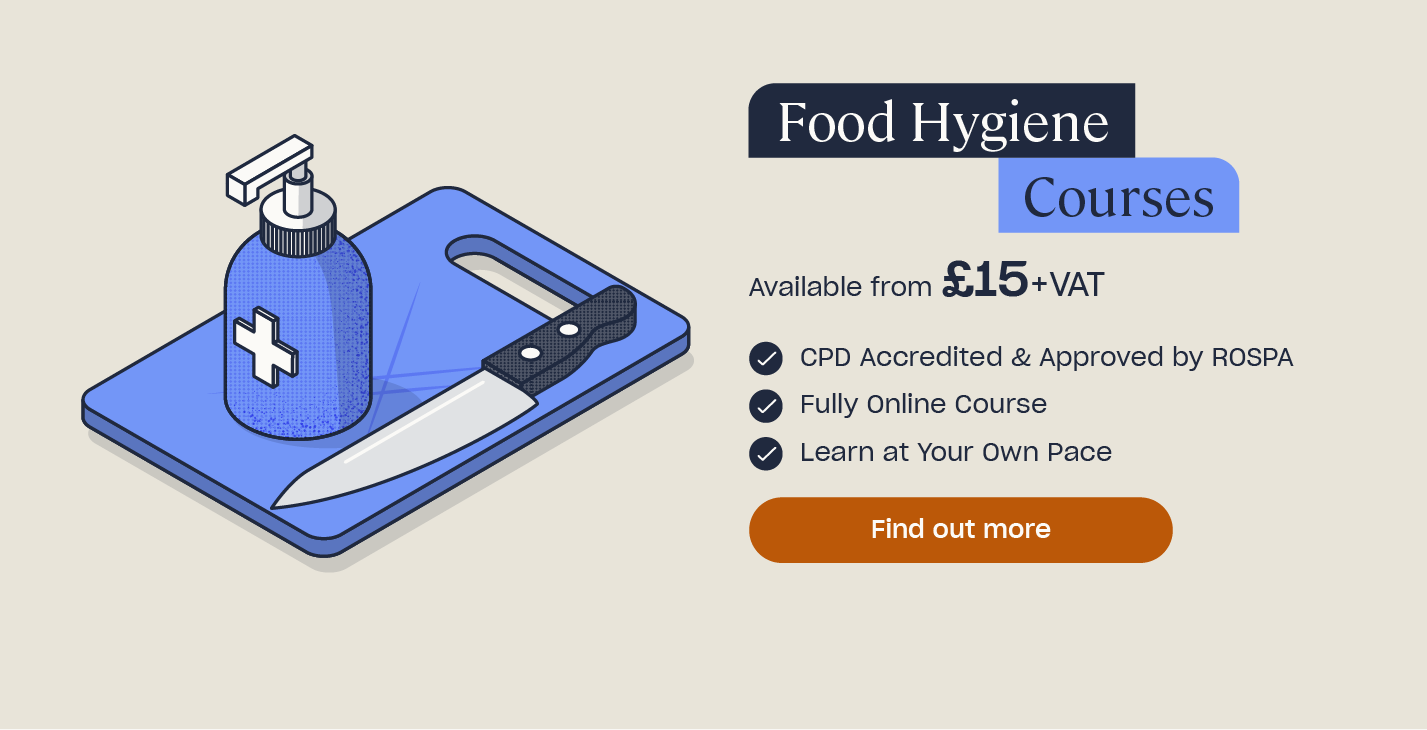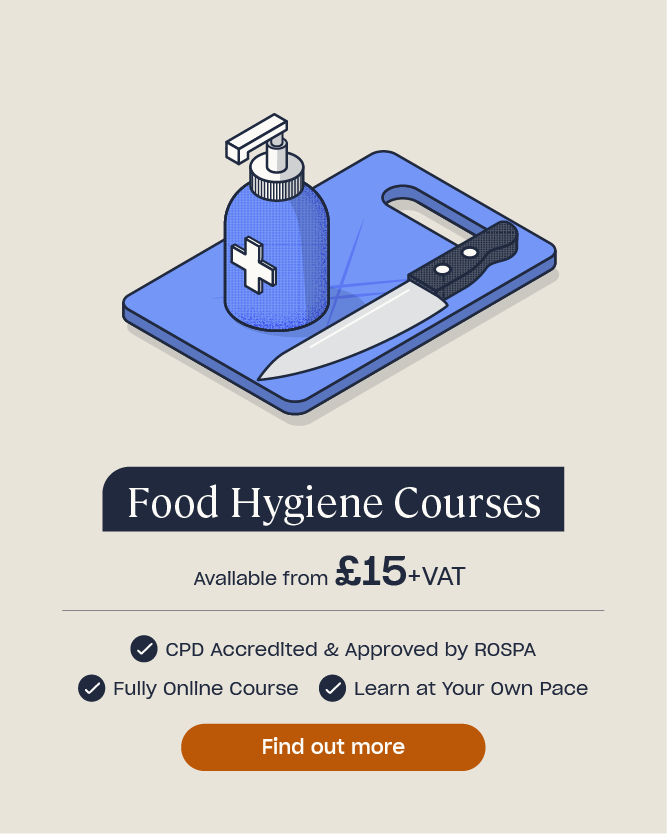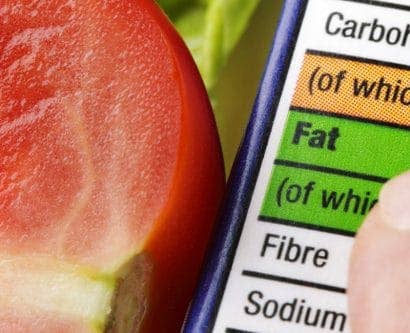What is Food Fraud Costing Your Business?
Are you aware of how food fraud might be costing your business? It’s rare that food fraud cases make headlines as famously as the horsemeat scandal in 2013, but the reality is that food businesses are still facing fraud risks every day. What’s more, it can impact your business in more ways than one.
It’s crucial to understand the costs you may face. You’ll recognise why taking action against food fraud is more important than ever, as doing so ensures the longevity of your business.
What Costs May A Food Business Face?
The deliberate alteration of food, which can occur at any point in the supply chain, usually ends in your business receiving lower quality and/or mislabelled food products. This will primarily have a financial impact on your business, but you’ll also put your reputation at stake and potentially face legal consequences if a customer consumes something misleading or even harmful.
These are costs that many businesses simply can’t afford if they want to last in today’s competitive food industry. Let’s take a look at these three potential costs – financial, reputation, and legal – in more detail below.

Financial Costs of Food Fraud
A study carried out in 2013 estimated that food and drink companies lost around £11.2 billion due to food fraud, which is equivalent to over 85% of total profits. It also calculated that this represents a significant additional cost of over 5 pence to the pound. For example, 5kg of white rice that costs £6 could potentially equate to £0.33 in fraud costs.

It’s difficult to estimate the monetary cost of food fraud because of how hard it is to detect fraudulent foods. Chances are you won’t even realise you’re buying mislabelled foods or paying a premium for products that have been bulked out with cheaper alternatives.

An Example of the Financial Costs
For example, olive oil is one of the most commonly adulterated products. Extra virgin olive oil in particular is in high demand but in limited supply. In fact, UK consumer demand for olive oil exceeded supply by 12% in June 2015. When supply and demand face such an imbalance, it’s no wonder why adulteration is so appealing to those looking for ways to increase their profits.
According to the Food Standards Agency (FSA), in 2014 Trading Standards found bottled olive oil in Surrey that had been substituted with inferior vegetable oil and adulterated with additional colourings and flavourings. In this situation, people who purchased the oil likely paid much more for the product than it was worth.

Consequences of Financial Costs
It’s therefore important to realise that, if fraudulent foods continuously reach your business, you may eventually feel its long-term effect on your mark-up. You might find yourself barely making a profit on products and wonder why your competitors are so easily getting ahead.
This can also occur if other businesses cut costs by knowingly engaging in food fraud. Often, they exploit the general lack of awareness in the industry and the difficulties of detecting it. The FSA state in their 2016 Food Crime Assessment that:
“[businesses] may face unfair competition from other businesses using fraud to increase margins […] the industry as a whole can suffer financially from food crime as distortions in markets lead to unfair competition and legitimate producers are undercut and potentially forced out of the market.”
Preventing food fraud is therefore in your best interests financially. Not only will you avoid unfair costs to your own business, but you may also help take down fraudulent activities that create unfair competition elsewhere. It’ll have a positive knock-on effect on the industry as a whole.

Case Study – Kiwigate
In late 2016, French kiwi producers noticed an unusual flood of ‘French’ kiwis during a time they were out of season. An investigation was launched, which discovered that 12% of kiwis with the label ‘French origin’ were actually imported from Italy. They were being deliberately mislabelled to make a higher profit.
The investigation also detected the presence of phytosanitary residues that are banned in France on the Italian kiwis. This helped them identify other cases of kiwis being passed off as French origin.

This crime was economically motivated, as French kiwis sell for an average of €0.70, while Italian kiwis are worth €0.50. The fraudsters made a total profit of an estimated €6 million (£5.28 million) over the three years they went undetected. During this time, French kiwifruit producers were undoubtedly impacted by the artificially lower prices, as it would have been difficult to keep up with the unfair competition.
 Reputation Costs of Food Fraud
Reputation Costs of Food Fraud
In the wake of the horsemeat scandal, customers are more aware of food fraud risks than ever before. They are distrusting and unforgiving when it comes to a lack of transparency from food businesses. In a food fraud survey carried out by NFU Mutual in 2017, 33% of respondents said they are less trusting of products and retailers than they were five years ago. Furthermore, 72% believe that food fraud is an issue in the UK and 70% take at least some measures to ensure their food is legitimate.
If customers discover that you sell fraudulent food, or they suffer from a health issue as a result, it’s only a matter of time before you face a serious loss of consumer trust. With people regularly taking to social media to voice their concerns and pass on their experiences to others, word can quickly spread and easily damage your reputation.
In the NFU Mutual survey, 50% of respondents said if they discovered a company that they’d never tried before was selling fraudulent foods, they would lose trust and not buy from them again. In the case of brands that they loved, 34% of respondents said they would lose trust.
Customers Value Transparency
Whether you’re aware of it or not, each new generation places an increasingly high value on transparency. So, a crucial way to future proof your food business and its reputation is to ensure clarity. Whether it’s because they’re on a diet or because they have specific dietary requirements (such as coeliac disease, allergies, diabetes, or veganism), people want to know you can provide accurate and clear information about the ingredients and nutritional values of your food.

Interestingly, in the NFU Mutual survey, 24% said they would accept a company swapping ingredients as long as it was transparent and safe.
It’s therefore clear why many customers will base their dining choices on whether you’re transparent about your food. Menus that are unclear or misleading essentially implies to customers that you’re not interested in accommodating their dietary wants and needs. To them, you’re not a trustworthy place.
Over time, you may find that this is why your business dwindles and other places thrive, as they are meeting the growing needs of their consumer base.

Case Study – Supermarket Mislabelling
In 2017, Aldi and Waitrose came under fire from customers and farmers for claiming that their lamb products were ‘Produced in Britain’. It was discovered that they contain traces of imported New Zealand meat, so were not completely British. The ingredients apparently described this, but the labelling of ‘British’ – which many shoppers would trust at a glance – heavily implied it was 100% British-sourced meat.
The public deemed this unacceptable, particularly those who want to support their local farmers and want the products they buy to provide honest information. As a result, many people shared their dissatisfaction on social media.

A farmer even started a poll on Twitter to gauge whether or not people thought the labelling was acceptable. Over 4000 people voted, with a staggering 97% responding with “Unacceptable (and a lie)”.
 Legal Costs of Food Fraud
Legal Costs of Food Fraud
If food businesses knowingly engage in food fraud or fail to implement preventative procedures, they are breaking the law. This includes fraudulent or deceptive practices, the adulteration of food, and any other practices which may mislead the consumer.
For example, if one of your products is fraudulently bulked out with an allergen and this causes a consumer to have a life-threatening reaction, you could face legal repercussions. However, misleading or false information also goes against food control laws, even if it’s not life-threatening, such as the well-known example of horsemeat claiming to be beef.
More specifically, the Official Controls Regulation states that competent authorities take account of the following when regulating food:
“[…] any information indicating the likelihood that consumers might be misled, in particular as to the nature, identity, properties, composition, quantity, durability, country of origin, or place of provenance, method of manufacture or production of food.”
How Can Legal Costs Impact a Business?
If food businesses find themselves in legal trouble, they could face fines, a loss of business time, and, at worst, closure and prison sentences

The repercussions depend on the severity of the fraudulent activity and the degree to which individuals or the business were knowingly involved. However, a run in with the law is likely to leave its mark on your business no matter what. Permanent closure is the worst-case scenario, but even getting off lightly with fines can have a serious impact on the financial success and longevity of your business.
Perhaps even more significant is the long-lasting damage it can have on your business’s reputation. As mentioned in the previous section, food fraud can quickly lead to a negative public perception. In the NFU Mutual study, 46% of respondents said that high profile cases of fraudulent food in the media, e.g. the horsemeat scandal, were responsible for their concerns about food fraud.
Although many food fraud cases don’t hit global headlines, many do make local news and continuously raise awareness. Food fraud is also an increasing area of concern for the FSA, as well as other governing bodies, who work hard to combat it and share reports.
So, facing legal consequences could see your business’s fraudulent activities published in online print, which many of your target consumers may read. If your success hinges on your reputation, particularly if you’re a smaller establishment, news reports about your involvement in fraud could easily number your days.

Case Study – Restaurant Owner Jailed
In 2014, a customer at an Indian restaurant suffered a fatal anaphylactic shock after eating a curry containing traces of peanuts. The court discovered that the restaurant was cutting corners by switching almond powder for a cheaper ground nut mix, which contained peanuts.

The customer had clearly specified ‘no nuts’ when placing his order, but – due to this substitution and the belief that a product contained only almond – his request wasn’t followed. Three weeks prior to this customer’s death, another customer had suffered a non-fatal reaction at the same restaurant. Authorities warned the owner following this incident, but they continued to adopt a “reckless and cavalier attitude to risk”, the jury was told.
The owner, who was nearly £300,000 in debt and trying to cut costs, was found guilty of manslaughter and jailed for six years. The judge stated that he had thrown away his successful business and property portfolio worth £2m “in pursuit of profit”.
 No food business can afford the costs of food fraud. What’s worse is that it can easily put people’s lives at risk. It’s only through a collective effort that the food industry can begin to combat food fraud. Therefore, you should ensure your business has a robust control system in place, so everyone can help prevent and report it. For example, having proper whistleblowing procedures gives everyone in a business the opportunity to join the fight against food fraud.
No food business can afford the costs of food fraud. What’s worse is that it can easily put people’s lives at risk. It’s only through a collective effort that the food industry can begin to combat food fraud. Therefore, you should ensure your business has a robust control system in place, so everyone can help prevent and report it. For example, having proper whistleblowing procedures gives everyone in a business the opportunity to join the fight against food fraud.











